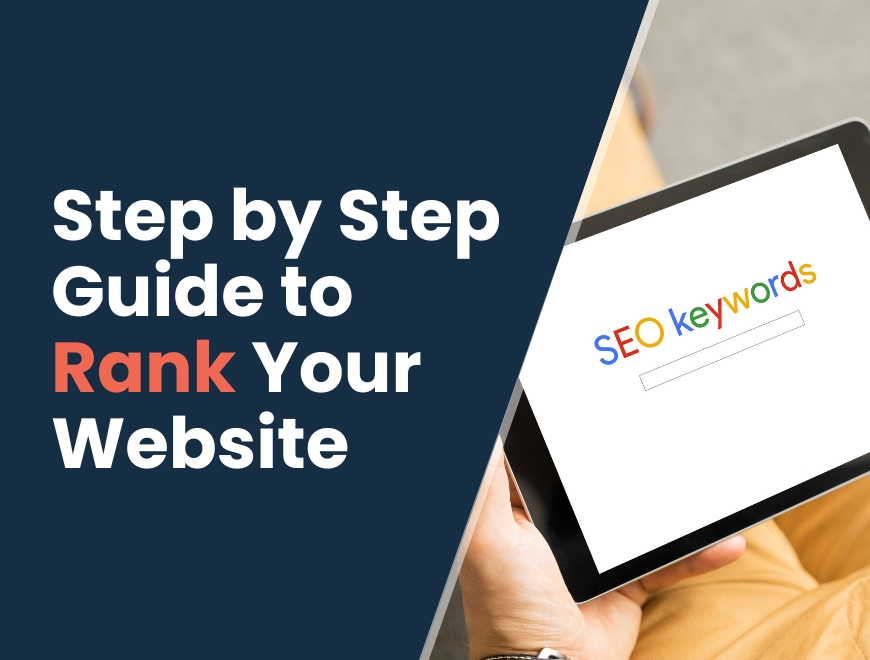The Million-Dollar Question – How Long Does it Take to Rank #1 on Google?
In my field, this is one of the most common questions I get asked, especially when talking to potential new customers. The answer, which usually annoys people, is – it depends – on several factors.
“The most significant factor in answering how to reach #1 is – who currently has the number one page you want to rank for?”
Google has deemed whoever is number one as the best website for that particular keyword. How many other businesses are trying to go after that keyword and how well-optimised those websites are will dictate how much work has to be done to bridge the gap between the website you want to rank and the top-ranking website.
Ranking Factors Demystified – What Determines Your Google Success?
When you look at the gap between you and your competitor, a couple of factors come into that gap.
The first? Technical onsite optimisation. Is your website technically sound and aligned with Google’s best practices and policies?
The second? Content. Is your content engaging?
The third? User experience. Is your website built in such a way that the user experience is really great? If a website has terrible content or an inferior user experience, people will bounce after a few seconds on the page and leave that site. That’s a terrible signal you don’t want to send to Google.
The last factor? It’s authority – the authority of your website.

Authority, And How To Get It
Authority is determined by how many other websites link back to your website. If you’ve got lots of websites linking back to your site and those websites are really authoritative, it will boost your level of authority.
“Think of it this way. If I own a restaurant and a bunch of random people, review it and leave a review that says, ‘Yeah, it’s a fantastic place. It’s great. Excellent.’ – that will carry some weight. But if Gordon Ramsay, for example, comes along and says, ‘This is one of the best restaurants I’ve ever eaten at, you’re going to have a lineup at your door for the next couple of years.”
Gordon Ramsay’s recommendation comes with much more weight than some random person no one knows. Website authority is the same. If other websites link back to you with Gordon Ramsay level stature, your website will get the maximum benefit from the value of these links – in the same way that word-of-mouth referral works.
Building Authority – With Backlinks
If a major newspaper publication links back to your website, that has a ton more credibility than some random business directory website. That’s how you build authority.
But how do you actually do it?
Like many things, it’s not as easy as it sounds. In fact, it can be super tricky.
That’s precisely why Google uses links – websites linking back to your website, as one of the main drivers of authority. Google has 200 plus ‘ranking signals’ overall that determine how Google ranks websites. But arguably, one of the most important is how many other websites link back to you.
Because it’s so difficult to manipulate, Google uses it as a vital ranking factor. Getting a link from a major newspaper publication takes a lot of work. You’ll have to have something really, really important on your website for them to want to link back to you.
Google knows there must be a valid reason a newspaper website wants to link back to yours. This is how Google determines the value of backlinks. If a website of such great authority links to another website, Google will boost the other websites’ credibility.
These are the main factors that go into ranking a website number one on Google.

Strategies to Reach #1
If you are looking to get your website to number one for a keyword you want to go after, say it’s “Lawyer in Melbourne’, and you want to rank for ‘Family Lawyer, Melbourne’ or ‘Personal Injury Lawyer, Melbourne’ or ‘Plumber in Melbourne’, you need to start by looking at the top three websites currently ranking for that keyword.
How well-optimised are the top three? What’s their content like? Which pages of the website are ranking for the keyword? How many backlinks or links do these websites have pointing to another page currently ranking, as well as the main homepage and domain?
Data-Driven Insights – Tools for Success
You can get this data using tools like SEMrush or Ahrefs, which will tell you exactly how many backlinks there are and what backlinks they are. You can try and get links on the websites they’re linking to. A tool like this will give you all the data needed to understand how many other websites link back to their site and how much work you must do.
If they’ve got 500 links from really authoritative websites and you’ve only got five or six, you have a lot of work to do. It will probably take you a very long time to acquire those links. Knowing this, you should set your expectations accordingly.
“You can’t just rank number one overnight, or everyone would be doing it.”
I’ve noticed that Google does this funny thing: once a website starts to build authority, they’ll often switch you up for a day or two at the number one spot and see how your website performs. Now, if they debut you at number one for a minute and you have terrible onsite signals, that will create issues. This means that if people come to your website but bounce away or don’t stay for that long, it tells Google that people didn’t find what they needed on our site. That’s a pretty bad signal to send to Google.

Sending The Right Signals To Google
If users need to leave your site to find what they want, this will send the wrong signals to Google. Google will see that users left your site to return to the search engine to click on another website. If you get too many of those signals, Google’s gonna bump you down. It can be challenging to get back up once you’ve been demoted like that.
This is why you’ve got to pay attention to the website page you’re sending people to. It must have great content, a great offer, a good hook, and a good story. Keep the user on that page, or help them click through to another page of your website.
You may give users an option to ‘click here to book’, or ‘click here to send an email’, or whatever it is, to get that user to start interacting with your website. That will send a really positive signal to Google that the person who visited your website has now clicked another page to visit on your website. It tells Google that your site was an excellent result to show.
Realistic Expectations – Patience is Key
Back to the question, how long does it take to rank #1 on Google? How long is the piece of string?
While that answer really sucks, it comes down to what keyword you are trying to rank for. And who is currently ranking for that and how well-optimised they are. That’s the gap between them and you, and once you understand the gap, you’ll have a fair idea of how much work you need to overcome that.
You’ll need to create a game plan that addresses each part of the gap. You must also remember that you may not be the only new competitor wanting to rank for the keywords you are going after.
Your ranking strategy should cover the following:
- How much content you’ll need to write
- How much technical work you’ll have to complete
- How many links you’ll need to build
Each of these steps should be addressed to at least match competitors, if not do better than them. That’s how you get to be number one. Always take links with a grain of salt, too, because, from my experience, on-site signals are sometimes an even better ranking factor than the number of links pointing to a website.
I’ve seen instances where websites rank number one but have fewer backlinks than the number two or three. But for whatever reason, Google’s put them number one. Nobody knows the answer to why this happens except Google, but chances are the user experience, and signals that were sent from the site’s user experience were really positive.
Mastering User Experience
If Google has ranked a site and kept it at number one, it’s likely due to the excellent user experience. Google places a really high value on user experience. If people have a great experience with a site, and Google ranks the site well, chances are people will keep coming back and using Google. This is a robust business model because Google can keep running ads and making heaps of cash.
That’s why they’re constantly updating their algorithm- at least twice a day, to ensure that the results served up to people searching are fantastic. It keeps people coming back for more. Everybody uses Google’s products because you get the best answers to your searches.
So that’s the answer to how long it takes to rank a website – as long as it takes to bridge the gap between your site and the one currently in the #1 spot.




